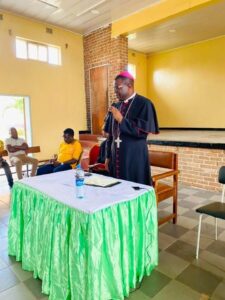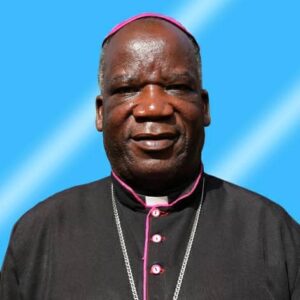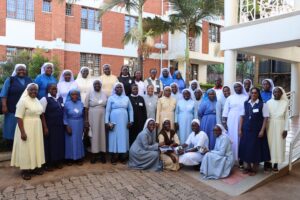UGANDA: Cardinal Challenges The Religious in Uganda to deepen Consecrated Life

His Eminence João Cardinal Bráz de Aviz Vatican Head of Consecrated Life (Image Courtesy)
His Eminence João Cardinal Bráz de Aviz, has challenged the Religious in Uganda to heed Pope Francis’ invitation to Consecrated persons to deepen their Consecrated Life.
“Pope Francis has said Consecrated Life is a treasure in the Church,” Cardinal Aviz said. “But at the same time, the Pope invites us to deepen Consecrated Life, the Prelate continued.
Cardinal Bráz de Aviz who is also the Prefect of the Congregation for Institutes of Consecrated Life and Societies of Apostolic Life, (CICLSAL) said this during his homily at the Holy Mass to mark the Golden Jubilee of the Association of the Religious in Uganda, (ARU).
The Cardinal was in Uganda at the invitation of (ARU), a Conference of Major superiors of Religious congregations of women and men in Uganda. Founded in 1968, the Association has a membership of about 100 congregations with a total of 6,000 Religious men and women serving in Uganda. He was the main celebrant at a Eucharistic Celebration concelebrated by 20 bishops and more than 40 priests. The Golden Jubilee celebrations that took place at the Lubaga Cathedral in Kampala Archdiocese attracted thousands of Religious men and women from all the 19 diocese of Uganda.
New wines into new wine skins
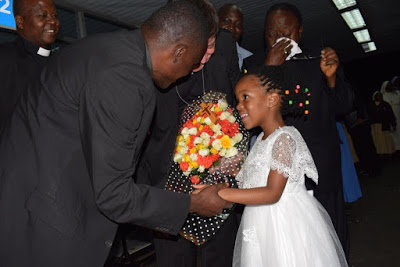
on arrival at the Entebbe International Airport in Uganda.
“The Pope reminds us that the new wine, Jesus Christ, must be put into new wine skins. And what are those new wine skins?” the Cardinal asked. He went on to outline four important aspects of Consecrated life namely formation, authority and obedience, relationship between men and women and money, which he referred to as ‘new wine skins’ that need to be renewed.
According to the Cardinal, the first ‘wine skin’ is formation, which he said must be taken care of. “We must have a formation of the disciples of Jesus and of the charism of the founder,” he stressed, adding that this was the first principle.
He compared formation to the work of the potter, and further explained that the most important virtue of a person who lets him or herself to be formed was that of docility. He said it was up to the potter to give the pot the form he or she wants.
“The person who allows himself or herself to be formed allows the form that Jesus himself is giving, and in this way one lets himself or herself be formed by the founder/foundress. As Consecrated persons, he said it was very important for them to open themselves to formation, which he said must also be done by the community of the consecrated persons.
Most importantly, he called on formators to communicate their experiences of being formed to those they are forming. And likewise, he said it was important for formators to communicate the experiences of their founders/ foundresses to those they are forming.
Secondly, he said there was need to review authority and obedience because Jesus has taught us what is very important. “For Jesus, authority is neither power nor domination but rather service,” he said, adding “if you want to be first, you must be the last because you are called to love always.” He said there was need for us to question how we can live obedience the way Jesus lived it.
The Cardinal recalled that Jesus, at his passion and death, cried to his Father for abandoning him as he suffered, and yet he always obeyed. “We ought to do the same. We must tell our superiors our difficulties and the things that are of concern to us,” the Vatican official implored.
He said it was important for us to tell our difficulties to our superiors and not be afraid to speak since the Holy Spirit speaks through us, and that this would help them to make good decisions concerning us. But he warned that we must be rooted in God when we say these things. Moreover, he insisted, that there should not be superiors and inferiors, since for Jesus it is confraternity, which he said was a way of living as Christians.
The third aspect which he said Religious needed to look at in relation to their Consecrated life was the relationship between men and women. He explained that it was important for us to ‘educate’ our affectivity and sexuality for living our Consecrated life, which he said was applicable for both marriage and celibate life.
“God created us men and women with the same dignity. The woman is not less important than the man,” he affirmed, adding that the woman must be on the same level as the man. In reference to St. Paul’s teaching about the man being the head of the woman, he said we must listen carefully to what he says. He explained that the teaching refers to the relationship between Jesus and his body the Church – just like Jesus is the head of the Church, giving life to the Church.
The Cardinal also spoke about money saying to the Religious, “We cannot serve both God and money; we must serve God and money must serve God.” He was however quick to note that it was only easy to understand this when one was poor. But in our midst we must look at each other as brothers and sisters. And this helps us to be real brothers and sisters.
Earlier on, the Cardinal made reference to the readings of the day which from the book of prophet the Book of Isaiah 63:7-9 saying that it reminds us to thank God for his bounty and his love for each of us; while the reading from the Letter to Philippians (2:1-14) reminds us that the most important thing amidst us is love; and that the Gospel (Jn. 15:9-17) tells us that the one who really loves is the one who practices the commandments of God.”
Various forms of consecrated life
The Cardinal then went on to acknowledge Pope Francis’ 2015 Letter which he dedicated to Vita Consecrata during the year of Consecrated Life (1995). He recalled that the Pope invited the Religious to look to the past with gratitude, noting that “Our past is a past that belongs to God and all our stories are very important.”
He said since the beginning of the first century there were women who consecrated themselves in virginity in the Church – the Order of Virgins. And among the consecrated persons he said there are those who belong to the Secular Institutes and that these today form a great number. He explained that those men and women who belong to Secular Institutes remain in the world and are involved in various professions but that they are consecrated to God in celibacy.
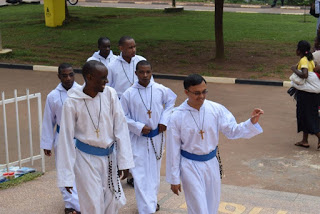 Another group of Consecrated persons ,Cardinal Aviz noted, was that of Hermits. He said hermits usually stay in isolation but that they are always searching for God.
Another group of Consecrated persons ,Cardinal Aviz noted, was that of Hermits. He said hermits usually stay in isolation but that they are always searching for God.
Then two other groups of Religious that the Cardinal talked of are the Monks and the Brothers and Sisters. He said the Monks stay in the Monasteries spending much of their time in prayer and contemplation while the majority of the Consecrated men and women, whom the Cardinal referred to as Religious Brothers and Sisters (are involved in active apostolate, profess the evangelical counsels and live community life – stress by writer).
Although consecrated life is as old as Catholicism in Uganda, the Brazilian Prelate observed that it was through Associations such as ARU that it had taken a more coordinated shape. He noted that ARU was founded almost at the same time as the Vatican II Council, thus associating it with the spirit of the Council – a sign of unity among us all.” And he added, “ARU is already helping to form Consecrated persons, which is a source of great joy.”
∽End∽
By Sr. Grace Candiru, MSMMC
